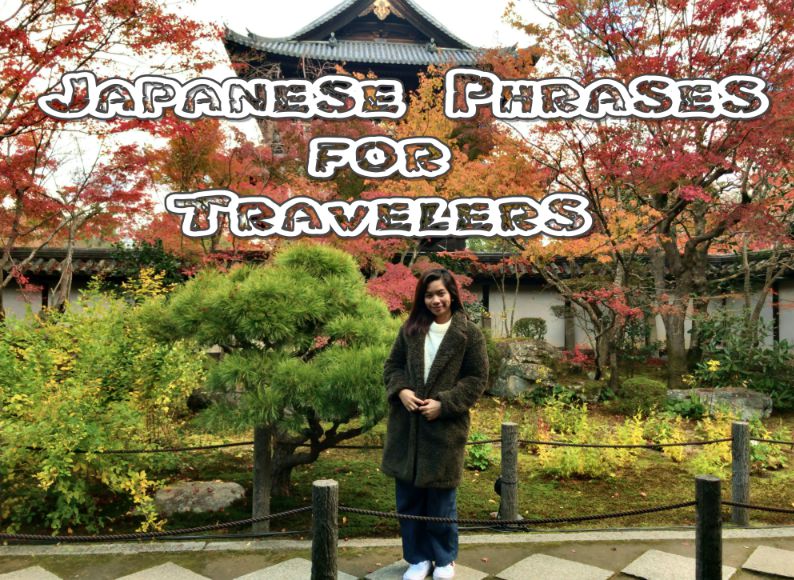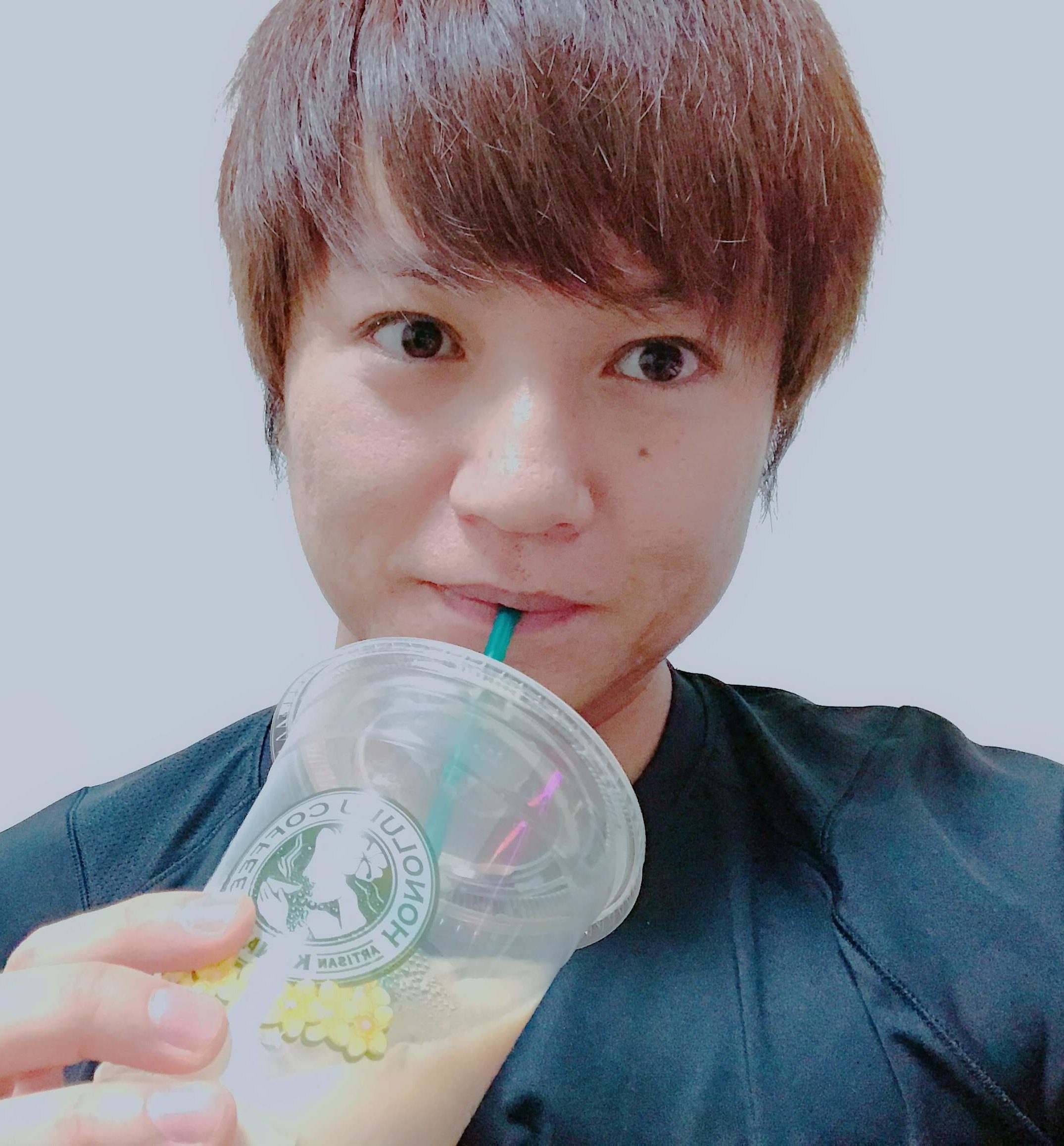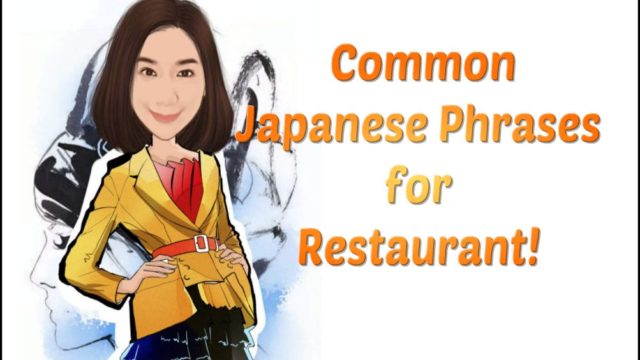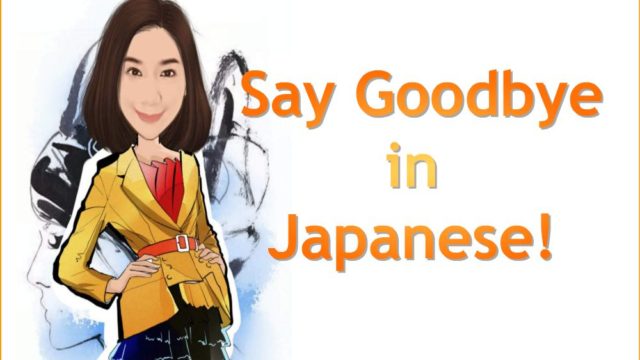Here are some of the important Japanese phrases for travelers that you must learn by heart in order to have a hassle-free stay in Japan.
Contents
Useful Greetings
Japanese people are naturally polite so whenever they have the chance to greet someone, they really do it out of courtesy.
I will introduce some of the most commonly used greetings in Japan that you need to know and show you how to use it in a sentence.
Ohayou gozaimasu! おはようございます (Good morning)

Greeting someone to show politeness in the morning is indeed a habit for almost all Japanese people. This can be used when you meet someone at the elevator, at work, or even when you are just finding a good restaurant for breakfast.
You can simplify it by saying Ohayou but please use this phrase if you are talking to a family member or a close friend.
Konnichiwa こんにちは (Good afternoon/Hello)

If there’s ohayou gozaimasu in the morning, there is also konnichiwa in the afternoon or when you just simply want to say hello to someone. This expression is perfect for greeting someone from 12 noon until 5 PM or before the sun sets down.
Konnichiwa as hello is really very particular with time. Please don’t say konnichiwa in the morning or in the evening even if you only want to say hello to someone. This can only be used during the specific time frame I mentioned above.
It’s really very weird if you use it inappropriately. Well, you can use the basics (ohayou gozaimasu, konbanwa) instead. It’s already understood in Japan so no need to worry.
Konbanwa こんばんは (Good evening)
As the sky turns dark, Konbanwa becomes a very common expression to use when greeting someone in Japan. It simply means: “Good evening” no more, no less! To be specific, Japanese people use this phrase from 5:30 till midnight.
Oyasuminasai/Oyasumi おやすみなさい|おやすみ (Good night)
To complete the list of the basic greetings related to time, oyasumi nasai which simply means good night. It is a good choice to use if you want to wish someone a good sleep ahead.
Oyasumi is a simpler form and can be used to your close friends, or loved ones. However, kids in Japan always say oyasumi nasai to their parents to show politeness.
Expressing Gratitude/Saying Thank you

Arigatou gozaimasu ありがとうございます (Thank you)
The expression arigatou gozaimasu is used when you want to thank someone in a more polite/formal way. You can say this to anyone you want to express gratitude for what they’ve done to you.
Arigatou ありがとう (Thanks)
A simpler way to say thank you is “arigatou” and this can only be used when you are expressing your gratitude towards a family member, close friends, or loved one.
Giving Apology when mistakes happen
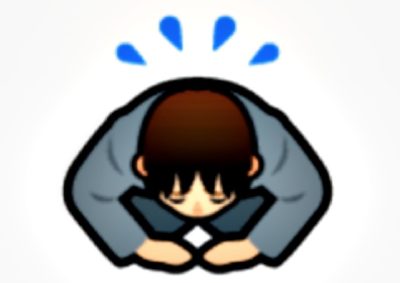
Sumimasen すみません (I’m sorry)
Sumimasen is a very useful phrase when you want to express your deepest sorry to someone in a formal way. Let’s say you are apologizing to your boss or someone you don’t know.
It also means “Excuse me” so you can use it when you want to call someone’s attention like at the restaurants or if you are passing by and need some more space to pass through.
Gomennasai/Gomen ごめんなさい|ごめん (I’m sorry)
Gomenasai or gomen is used when you want to say sorry to your friends, family, and loved ones in a more casual or informal way. Well, it’s always okay not to sound too formal when apologizing to someone close to you.
Meeting Someone/Getting to Know
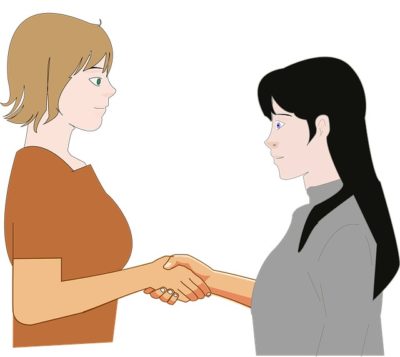
Hajimemashite はじめまして (Nice to meet you)
This is commonly used when you meet someone for the first time. Hajimemashite is one of the kindest words that you can hear in Japan because it’s like you are expressing happiness when meeting someone.
Yoroshiku onegaishimasu よろしくおねがいします
Please take care of me.
This is often used in formal situations when you are introducing yourself. Please take care of me is most likely the English translation for this phrase although this can also mean differently in any given situation.
Watashi wa _____ desu. わたしは____です.
My name is _____.
This phrase literally translates as “my name is ____” in English. Lets breakdown the sentence a little bit. Watashi means I, followed by the topic marker “wa” (speaking of) and the word desu means “is, are, am” in English.
If you want to sound more native-like, you can just simply say your name and add it with desu.
Kochira koso yoroshiku onegaishimasu. こちらこそよろしくおねがいします。
“It’s nice to meet you, too”
When someone is pleased to meet you for the first time and he/she said the phrases mentioned above, you can simply respond by saying kochira koso yoroshiku onegaishimasu which means, “It’s nice to meet you too.”
Saying goodbye when leaving

Sayounara さようなら Good bye
Sayounara is probably one of the most common Japanese words for foreigners and also often used.
However, in Japan, it is seldom used by the native Japanese people as it may sound like a final goodbye although children from grades 1 – 6 still use this word when leaving.
Jaa, Matane! じゃあ、またね! (See you later)
This expression is common for friends or acquaintances. A very common way to part ways without sounding too formal. A simple “mata ne” will also do when talking to friends.
Shitsurei shimasu しつれいします (Excuse me for leaving first)
This phrase is what I always hear whenever I go around and meet people at the elevator. When someone has to go out of the elevator first, Japanese people always say shitsurei shimasu which means: excuse me for leaving first.
Answering questions

Hai はい (Yes)
Hai is simply saying Yes if you are expressing a confirmation for something and if you agree with the statement of the person you are talking with.
Ie いいえ (No)
Saying no in Japanese also very simple. You can say ie if you disagree with the speaking or if you don’t like something.
Shitteimasu しっています (I know.)
Shitteimasu is a polite way of telling someone that you know what he/she is talking about. In most cases, you’d hear Japanese people say: “Hai, shitteimasu!”. If you want to sound more casual, you can simply say, shitte(i)ru.
Shirimasen しりません (I don’t know.)
Shirimasen is a polite way of saying I don’t know which means it is an appropriate response when you know nothing about something.
A simpler form and more casual way of saying this is shiranai. Please take note that this can be used when you are talking to a close friend or relative.
